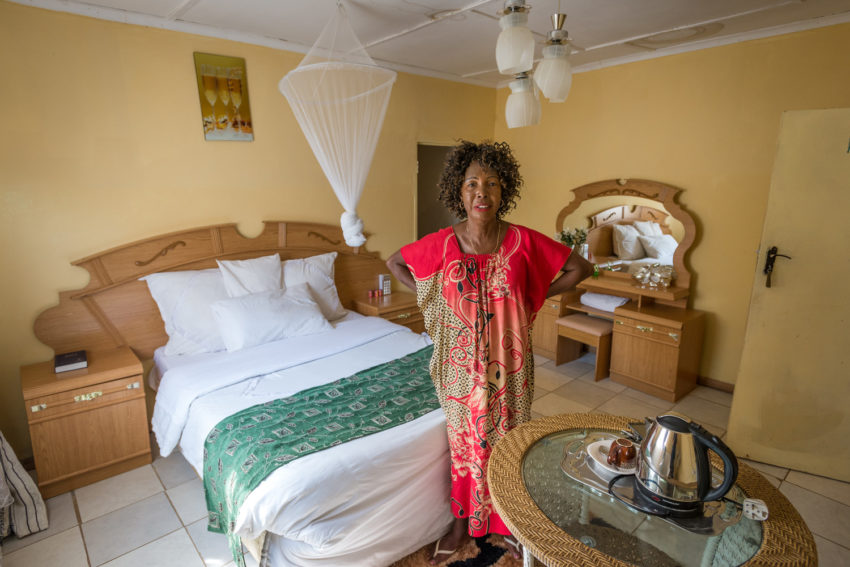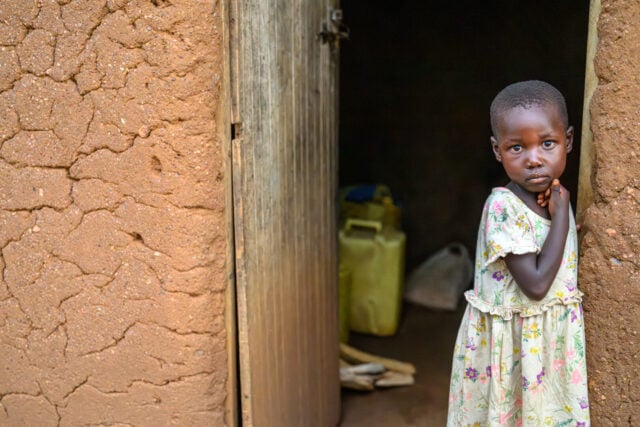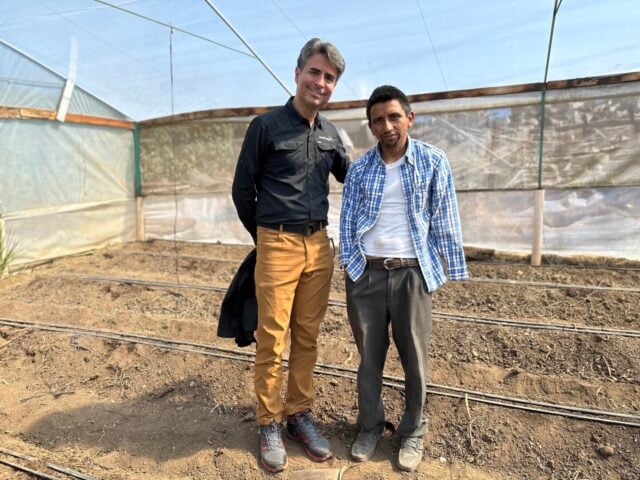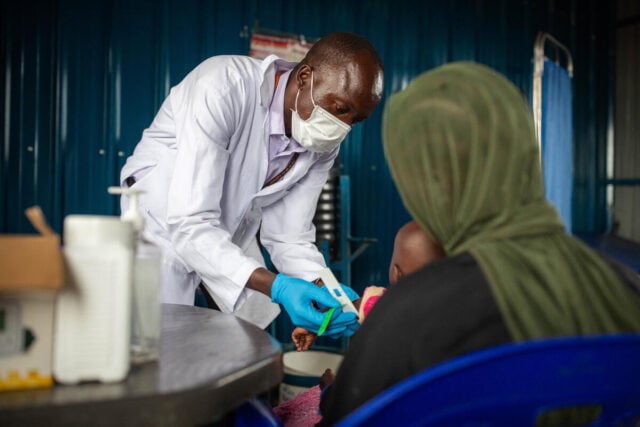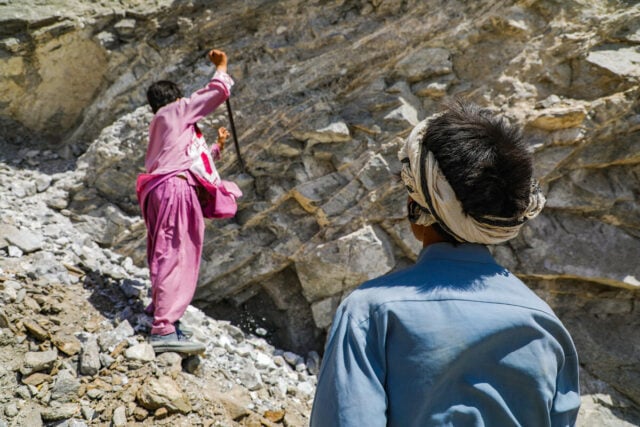The best place to stay in Chongwe, Zambia, is Graka Lodge, a 31-bedroom hotel that boasts the town’s only swimming pool. Dignitaries such as former President Levy Mwanawasa have rented the presidential suite.
The owner, Grace Graka, employs a staff of 24. She also owns rental properties, the local hardware store, and a small market. She has given back to the community by funding a women’s ward at the hospital and by building girls’ dormitories at the secondary school.
“Graka Lodge is God’s lodge,” says Grace. “The wealth I have and I am still getting is not mine; God is merely using me as a conduit to pass it over to others who are in need.”
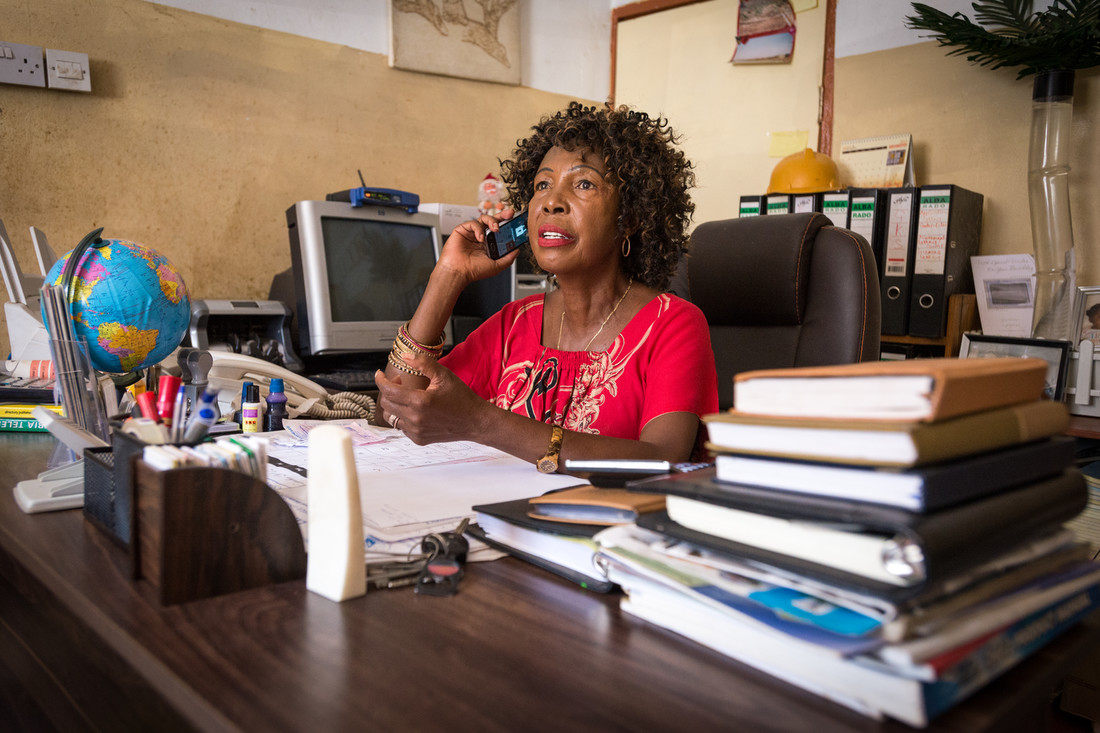
Given Grace’s success, it’s hard to believe that 21 years ago, she was in trouble. Her husband died, leaving her with nine children to care for. Then another blow: Grace had a stroke.
Still, she walked bravely into World Vision’s VisionFund office in Chongwe and asked for a small loan to purchase chickens to sell for profit.
As World Vision’s microfinance institution, VisionFund dispenses small loans for people to begin or grow their own businesses — everything from sewing equipment and capital to start a bakery to the chickens Grace planned to buy. In many communities where World Vision runs sponsorship programs, you’ll also find a VisionFund office.
The VisionFund loan officers were reluctant. Grace was high risk: a single mother with nine children, no husband, no collateral, and no business experience. At first, they declined to give her a loan. But Grace was persistent, and she convinced them to take a chance on her.
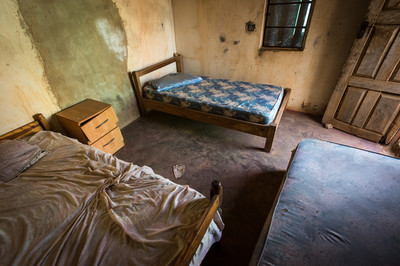
With the first loan, she bought 100 chickens. She repaid the loan. Then she got a second loan, bought 200 chickens, and repaid that loan. Then she got a third loan, bought pigs, and repaid that loan.
At the same time, Grace started a guest house out of her home, calling it Aaron’s Den in honor of her late husband. A steady stream of visitors paid to stay at Aaron’s Den, but when they did, Grace and her children gave up their beds to guests and the family slept on the floor. She had a promising business, but no direction on how to grow it without her family paying a price.
“My small children asked me, ‘Mummy, is this the kind of business you are talking about, and is this how we are going to live?’” Grace remembers. “I was perplexed. I looked at the child who asked the question, and I had no proper answer.”
The question nagged at her. “That night I couldn’t sleep,” she says. “I kept crying to God and praying to him to lift me and direct me to where he wanted me to be in this business so that I could have a proper answer to tell my children why I made them sleep on the floor.”
In time, their changed lives provided the answer. Grace’s son Aaron graduated from the University of Zambia. Her daughter Lillian is getting her degree in China, where Grace travels to buy materials for the lodge.
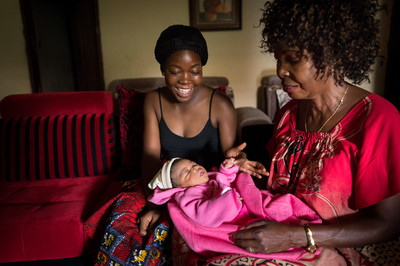
Though Grace’s children weren’t sponsored, the family lives in one of World Vision’s development areas, so they receive many of the same benefits, like access to VisionFund microloans, that sponsored children and their families do. World Vision’s holistic development model includes everyone in the community because what’s good for people in Chongwe is good for the sponsored children living there.
Grace remains humble. “Recently, the Zambian government chose me from all lodge owners in Zambia to speak to people in [other] countries where they took me such as India, South Africa, and a few others,” she says. “This is God’s will to inspire people, especially women, through me, not that I am the best.”
Next for Grace: a dream of taking in orphans. She never stops. Grace is truly amazing.
How World Vision empowers families
Economic empowerment isn’t limited to small loans. World Vision’s sponsorship-funded work also:
- Equips farmers with skills and agricultural training to boost production and increase incomes.
- Helps smallholder farmers organize and connect to larger markets, in most cases doubling or tripling incomes.
- Establishes savings groups where members contribute small amounts over time, then can take out loans for everything from their children’s university tuition to capital for a new business.
